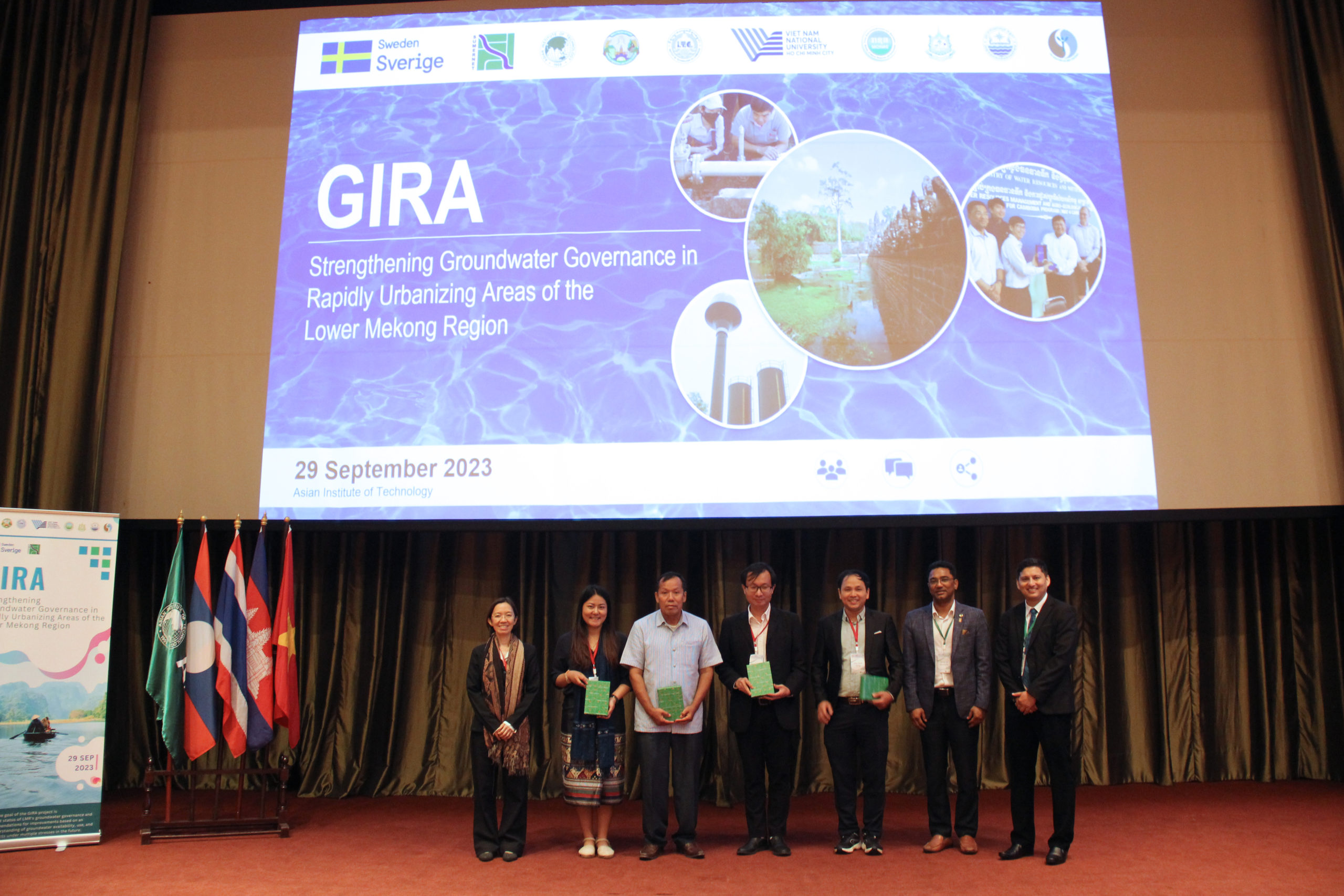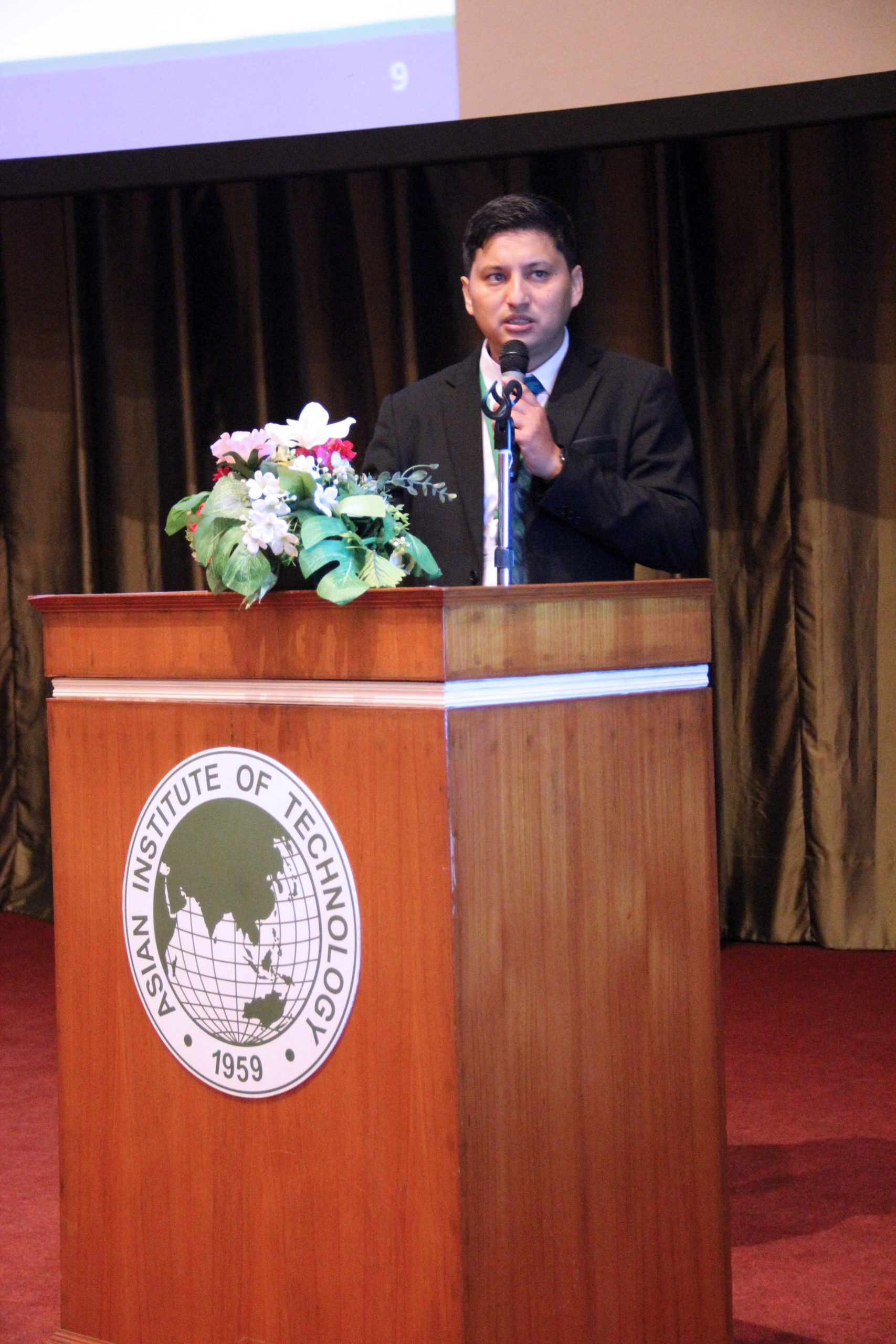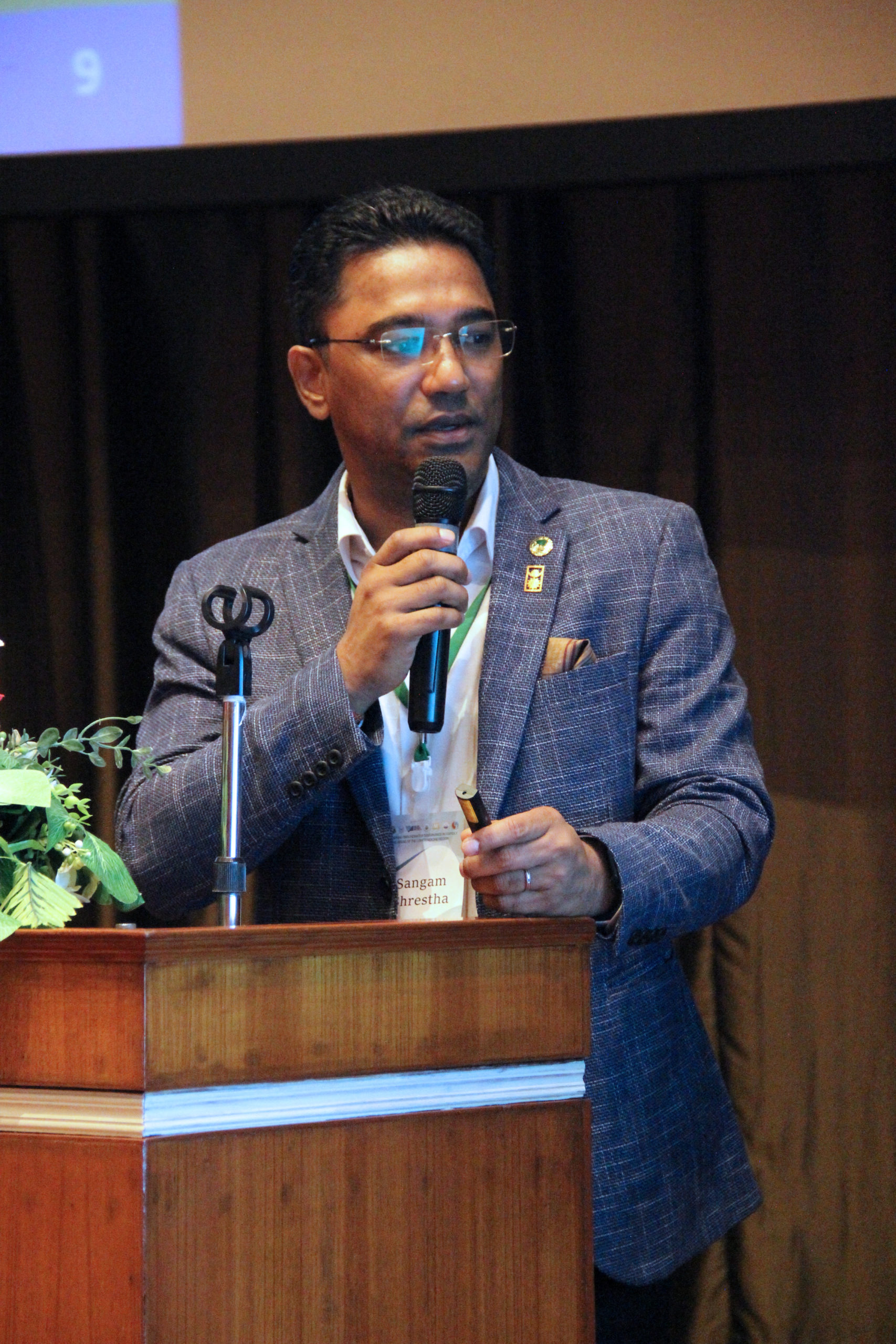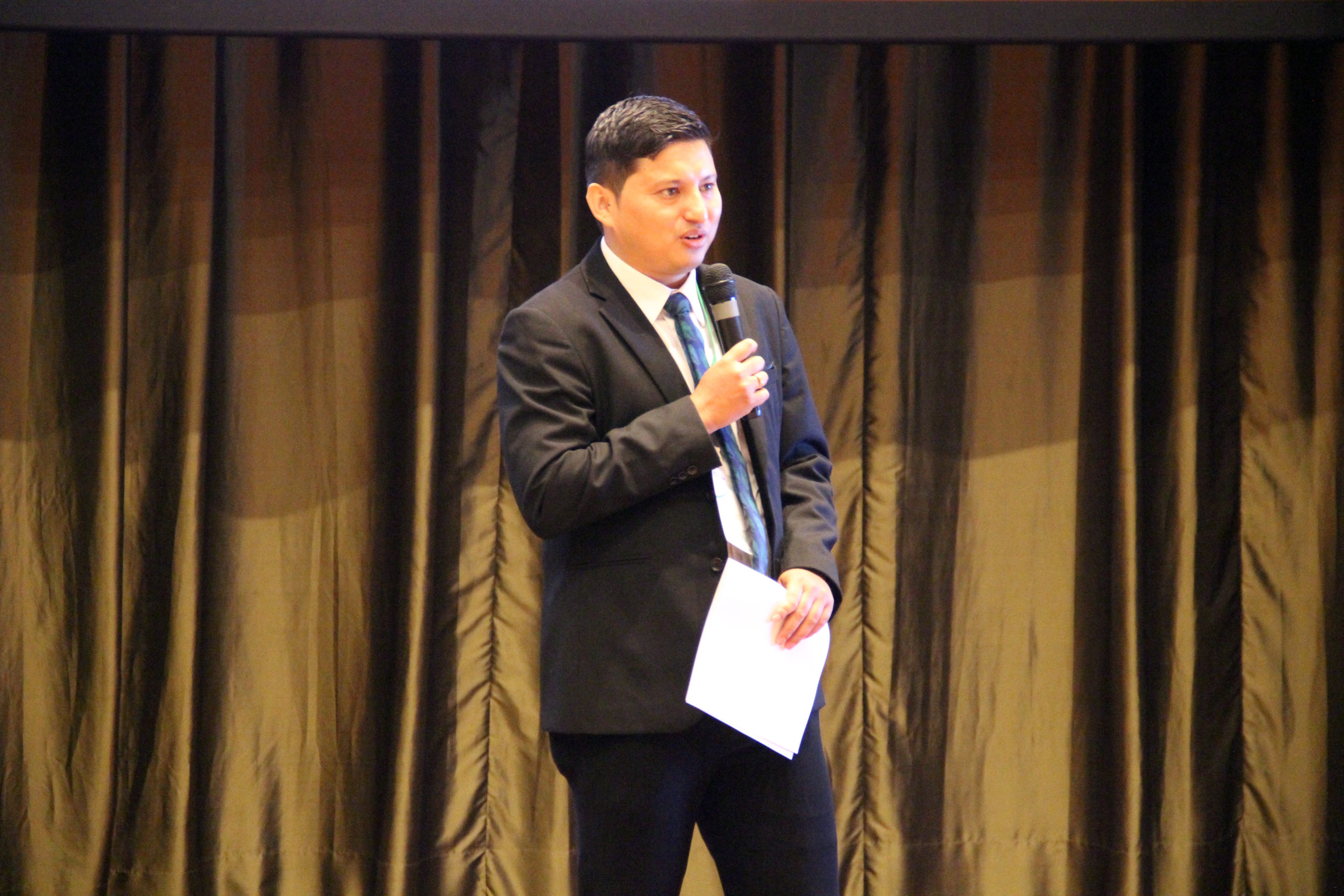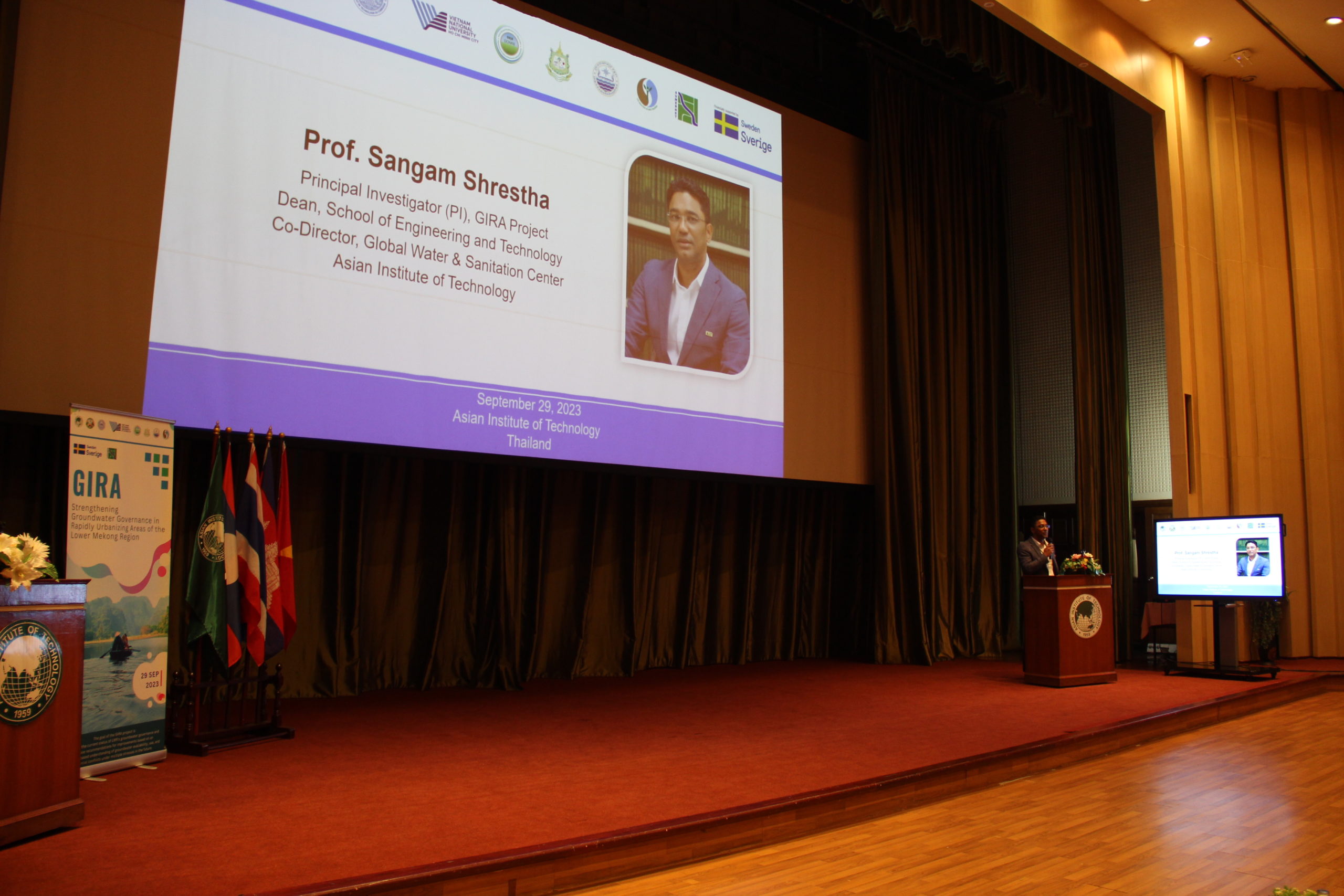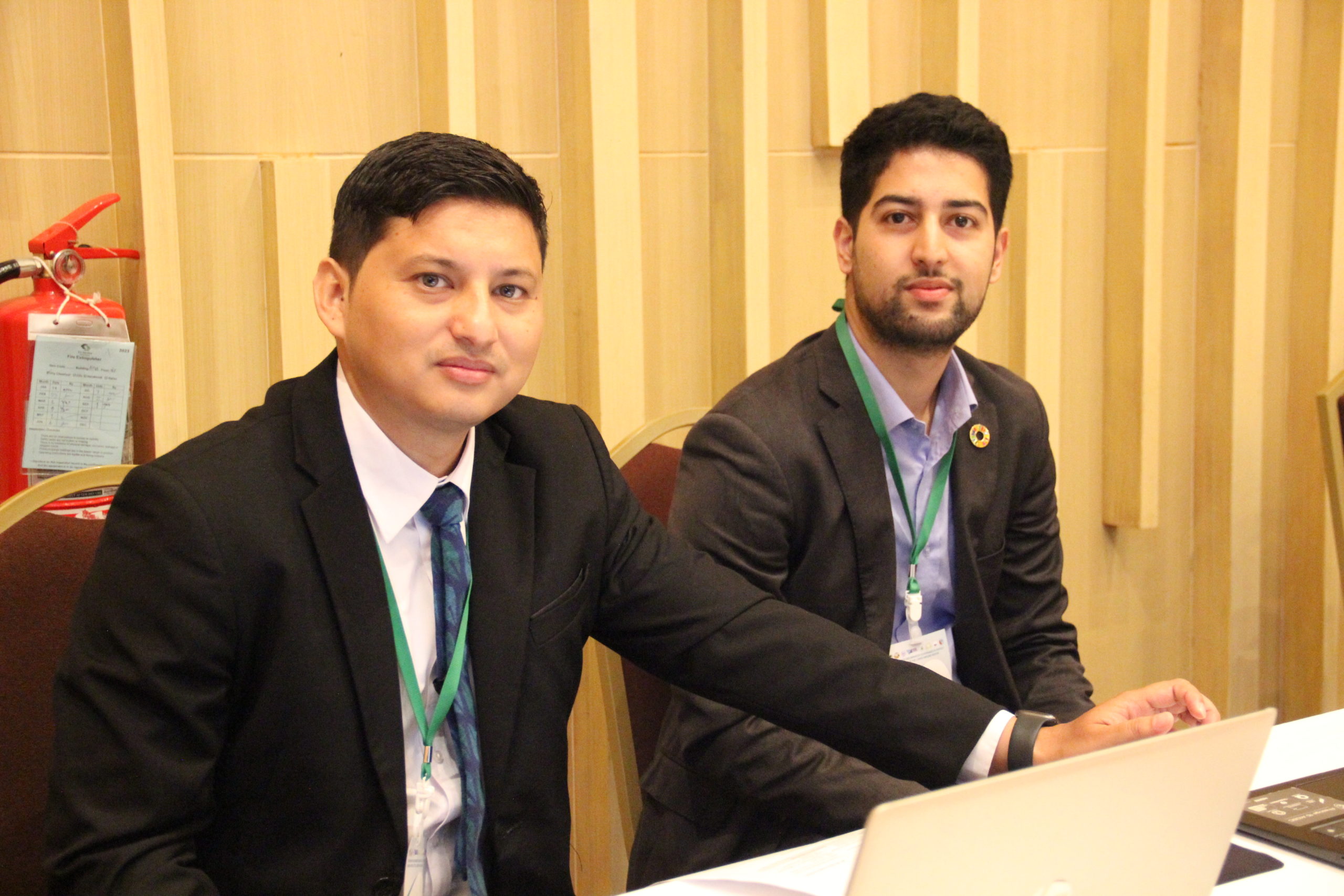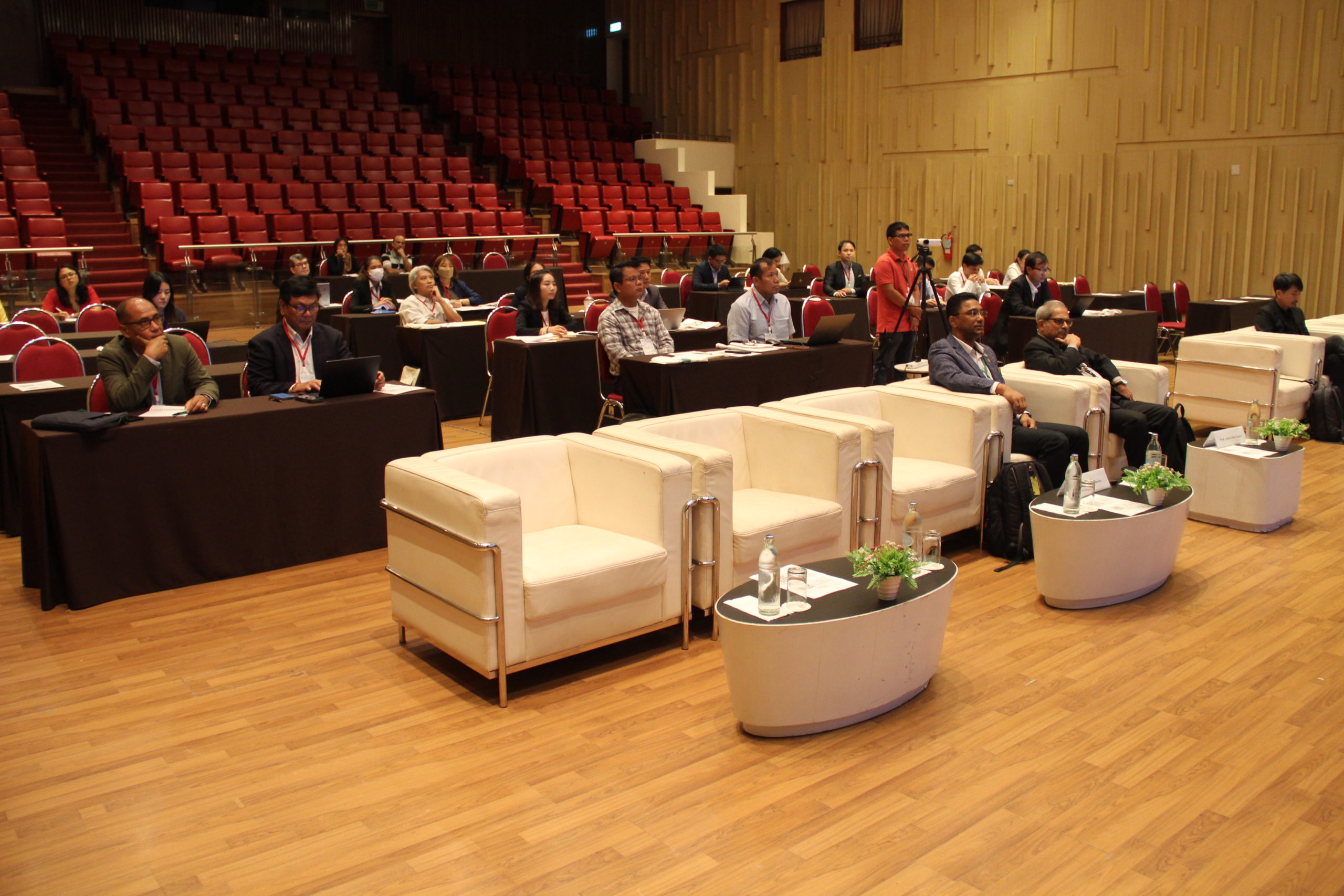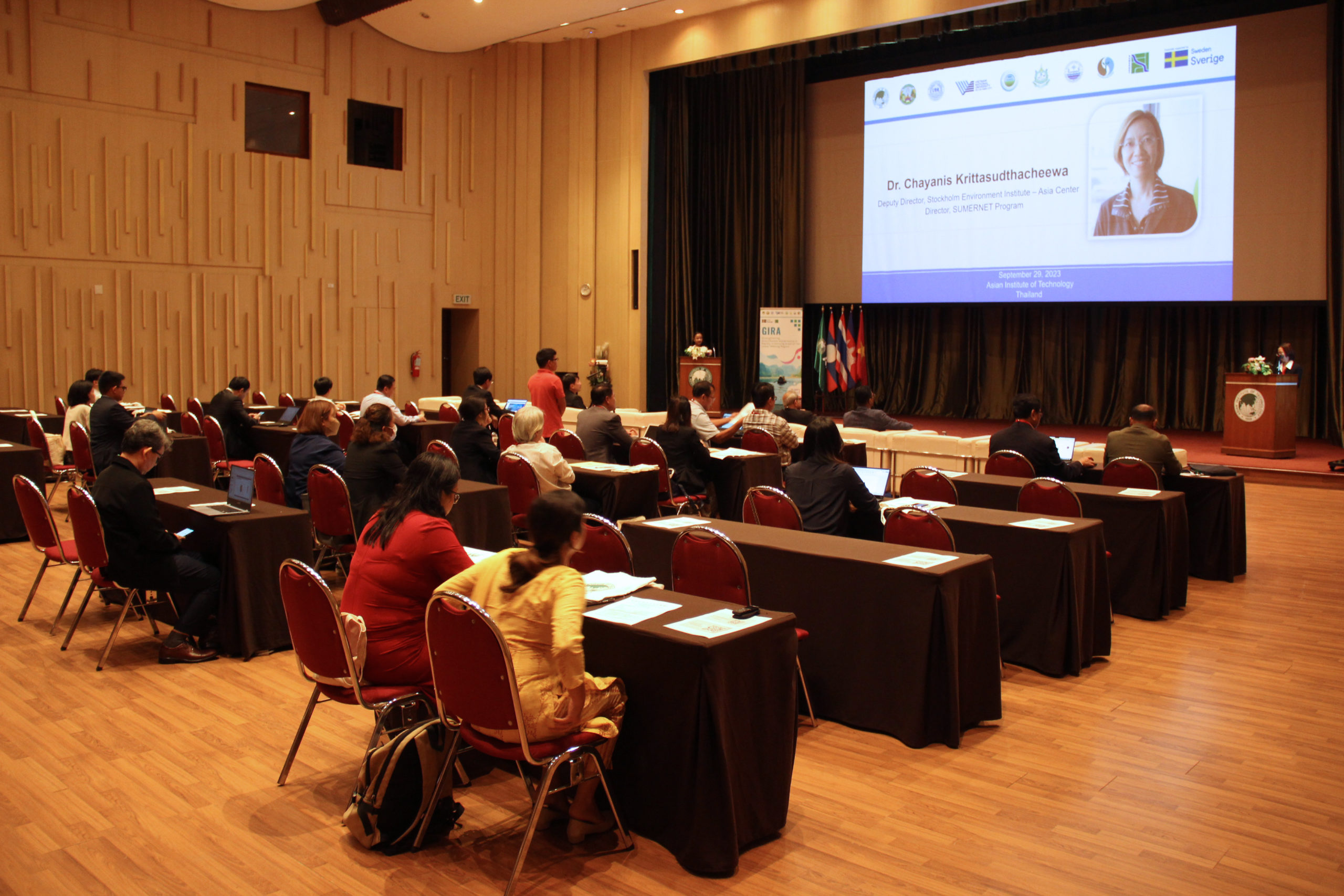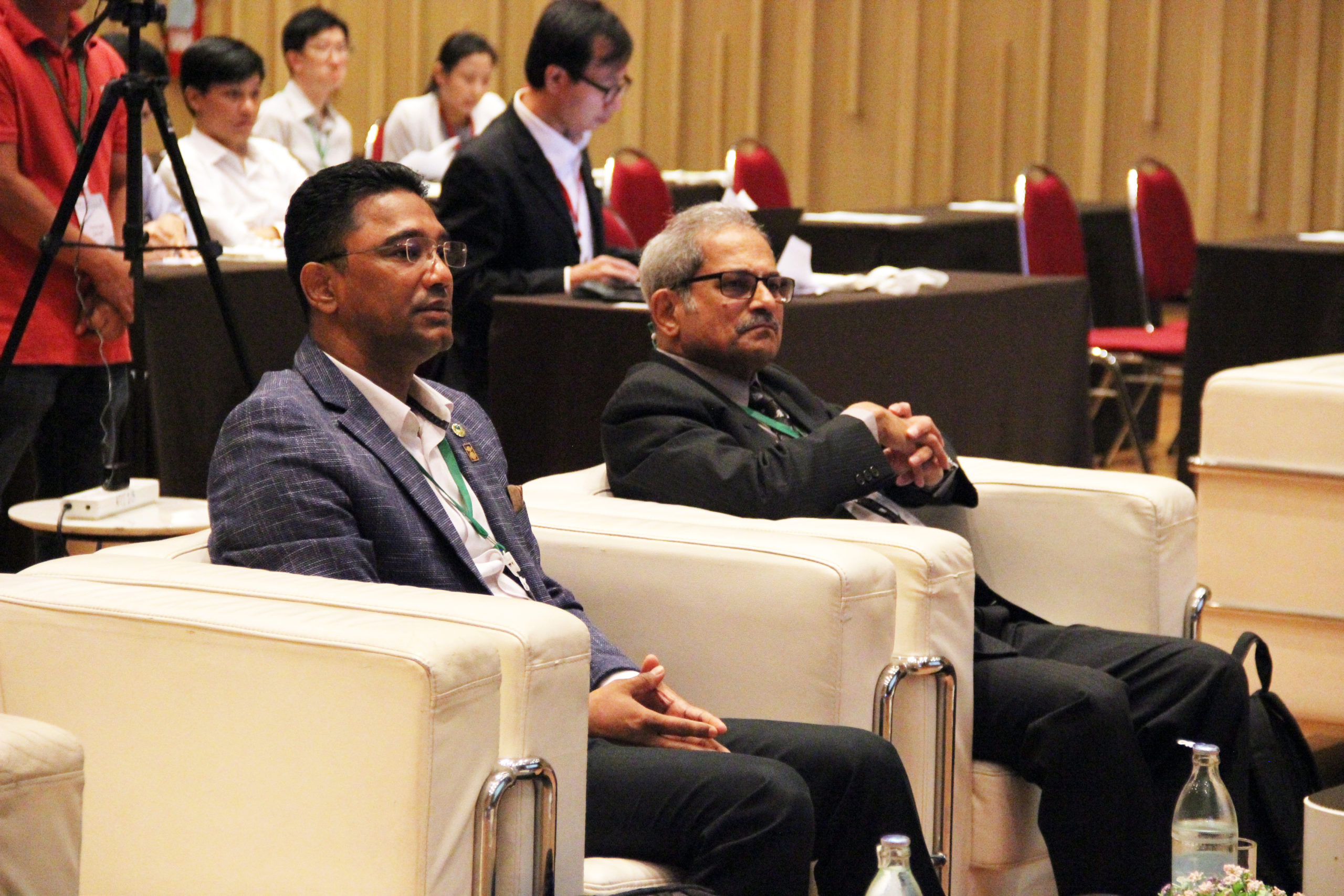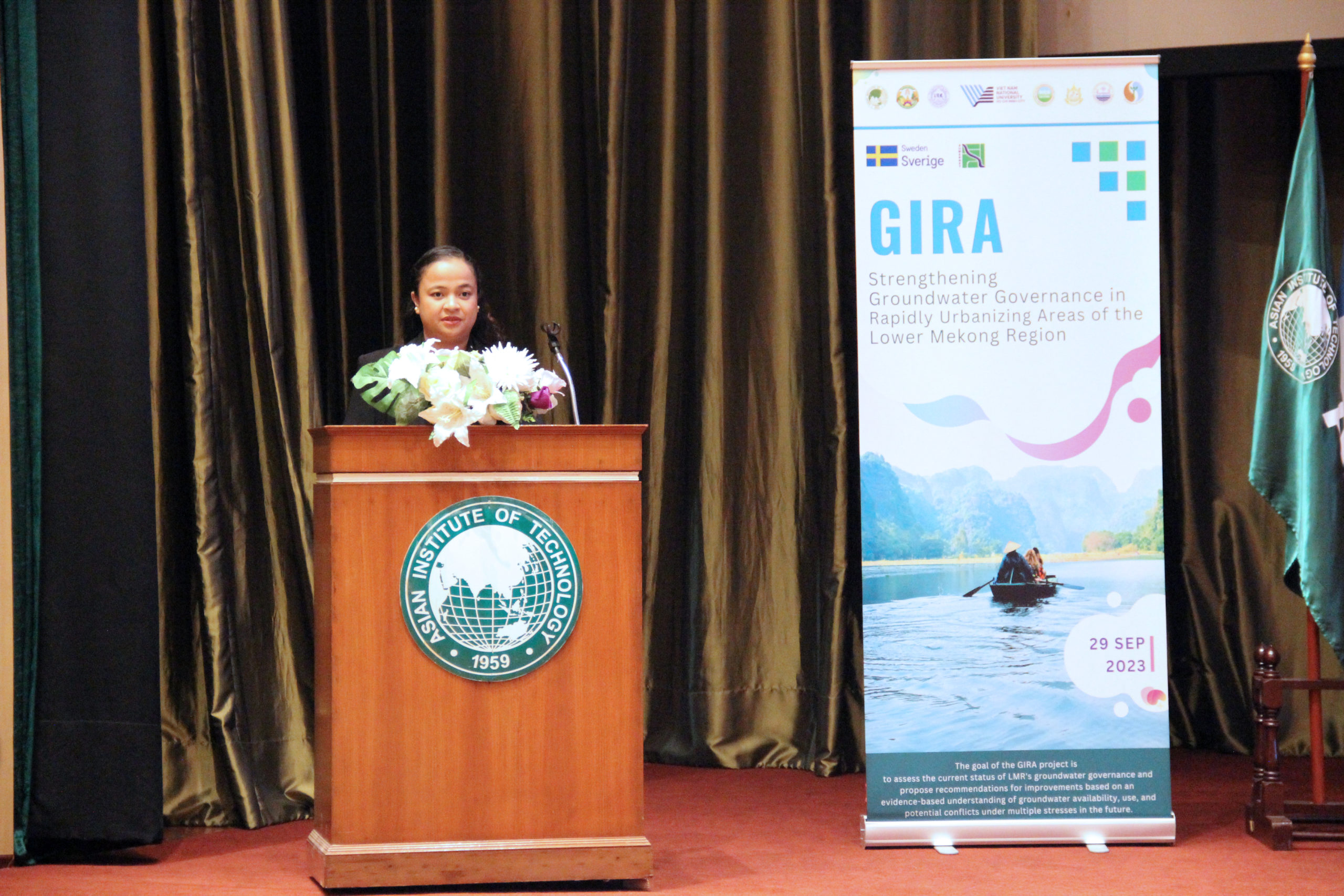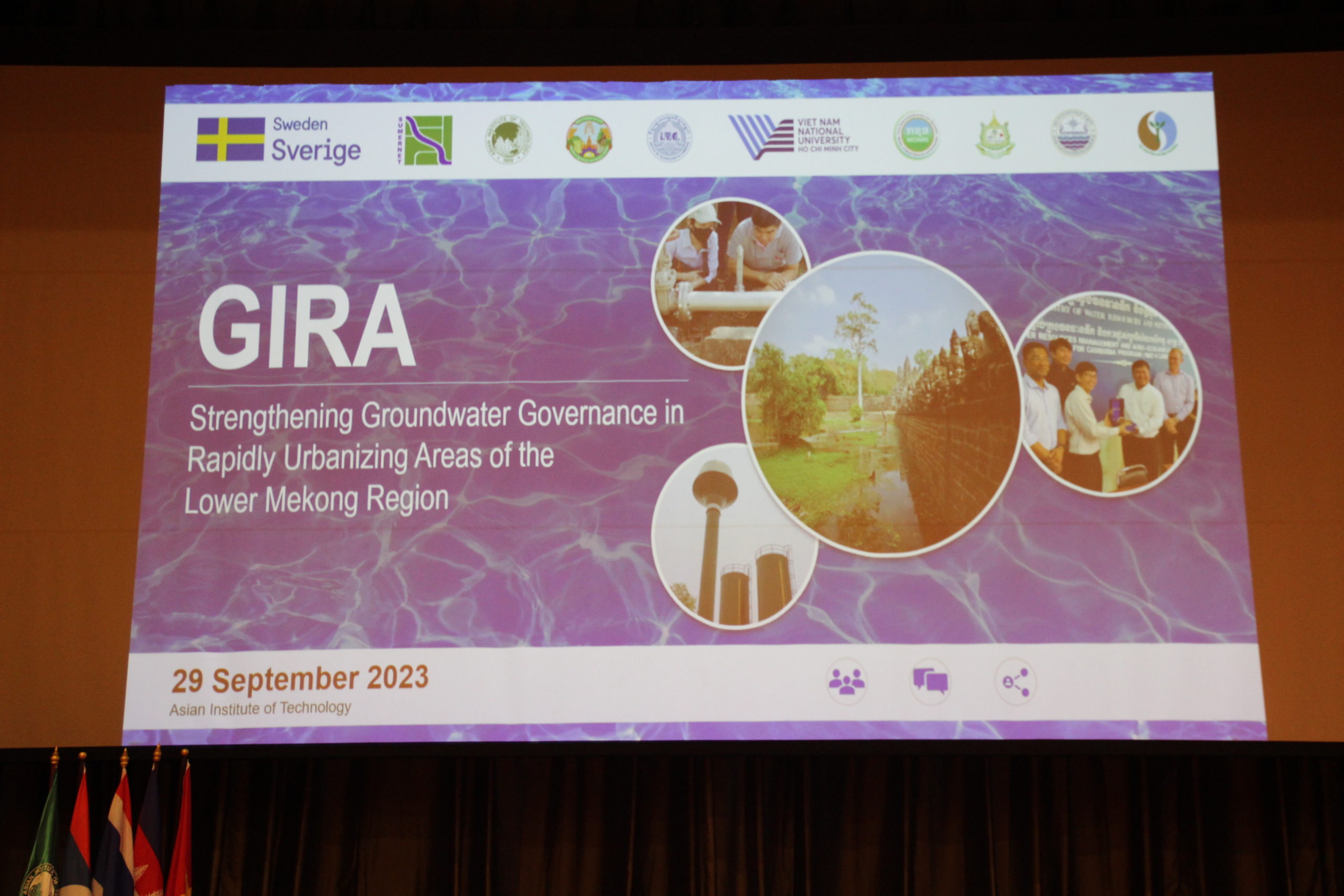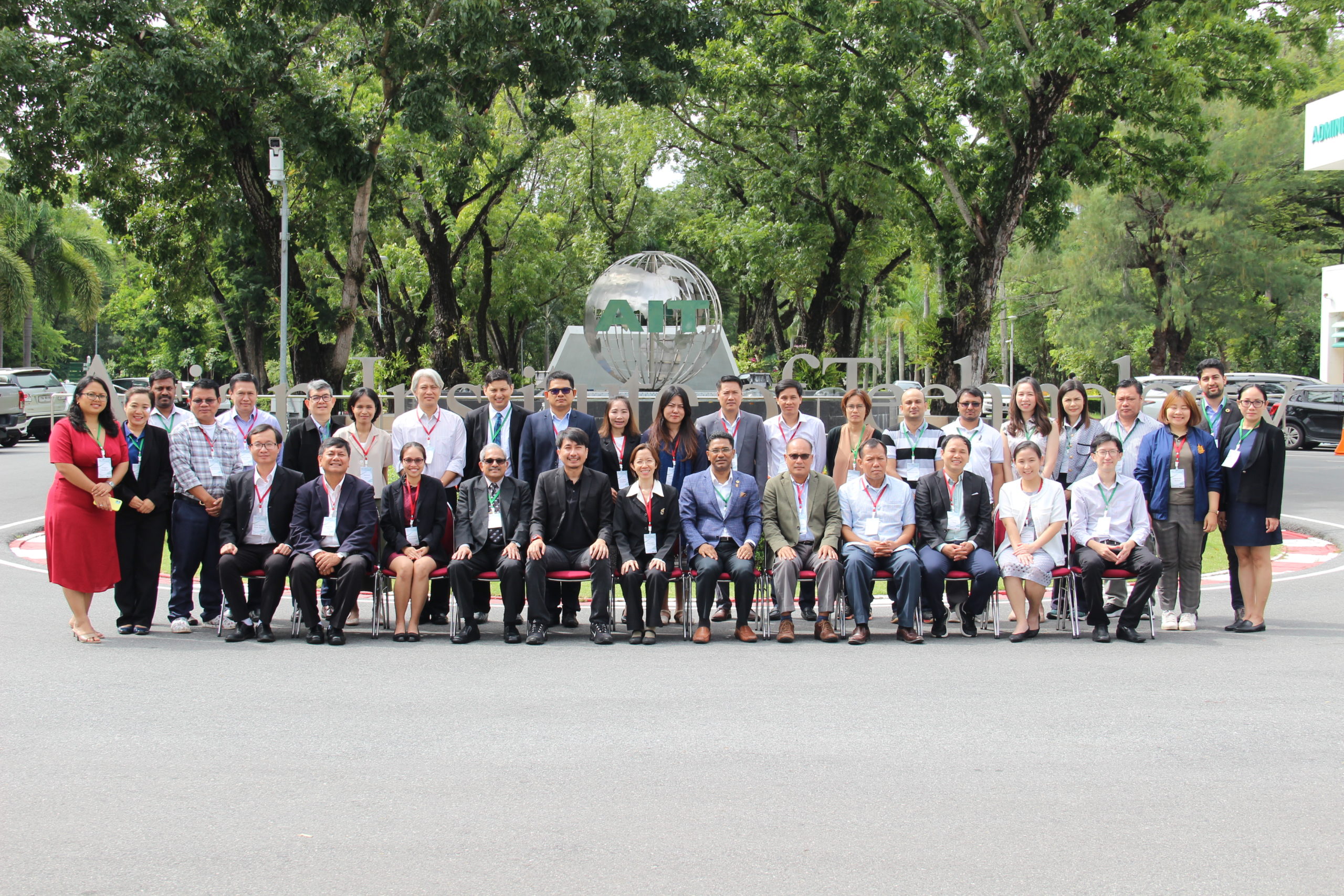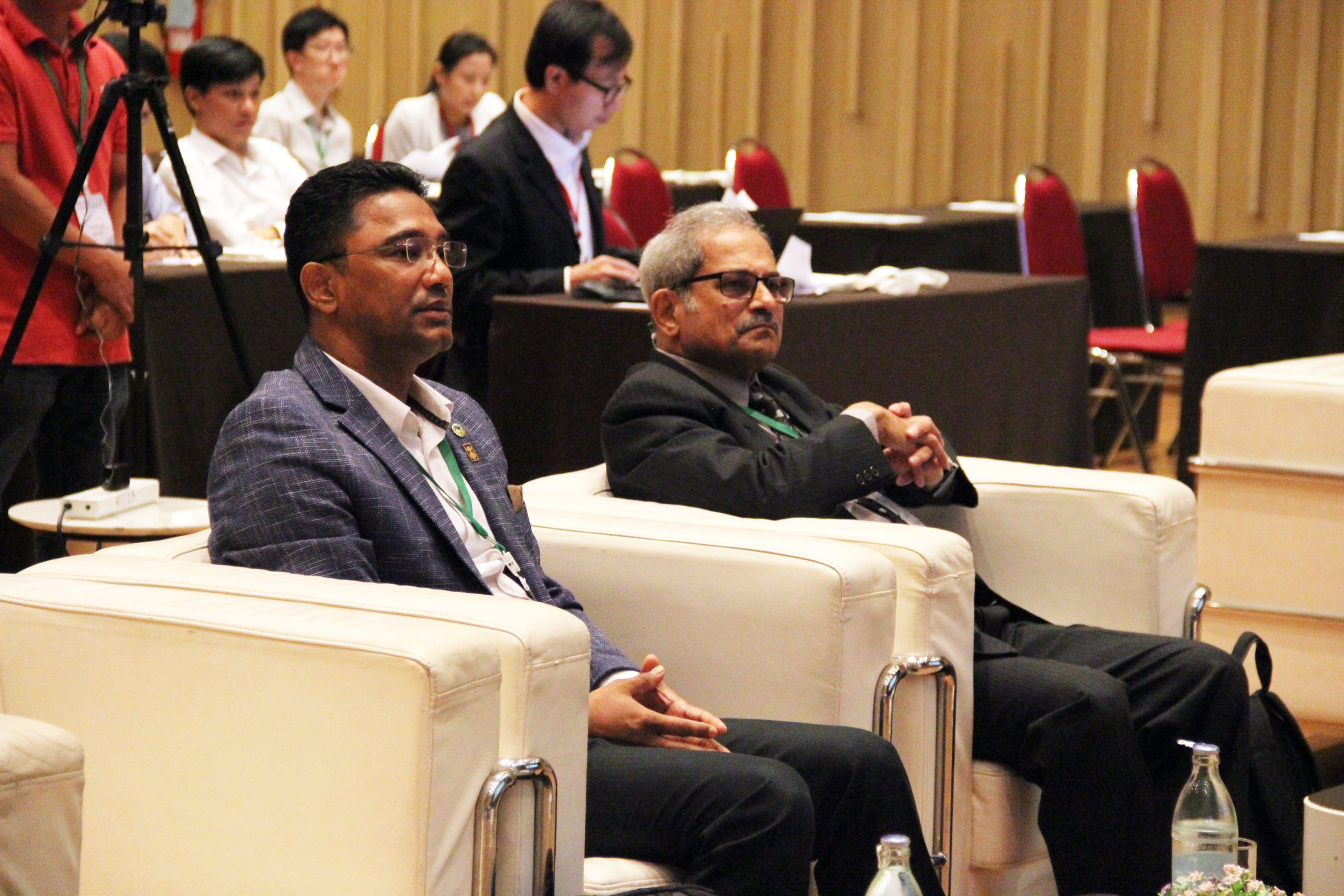
On Friday, September 29, 2023, experts and stakeholders gathered at the Asian Institute of Technology’s (AIT) Conference Center in Thailand for the closing workshop of the “Strengthening Groundwater Governance in the Rapidly Urbanizing Areas of the Lower Mekong Region” (GIRA) project. This collaborative effort, spanning two and a half years, aimed to evaluate the current state of groundwater governance in select rapidly urbanizing areas of the Lower Mekong Region and propose evidence-based strategies to enhance it.
Understanding the GIRA Project
The GIRA project was a joint initiative funded by the Stockholm Environment Institute (SEI) and SUMERNET 4 All. Its primary goal was to assess groundwater governance in four key areas within the Lower Mekong Region:
- Vientiane Capital City in Lao PDR
- Khon Kaen in Thailand
- Siem Reap in Cambodia
- Can Tho City in Vietnam
Dr. Chayanis Krittasudthacheewa, Deputy Director of the Stockholm Environment Institute (SEI) – Asia Centre, delivered the opening remarks, highlighting the project’s significance in addressing the critical issue of groundwater governance.
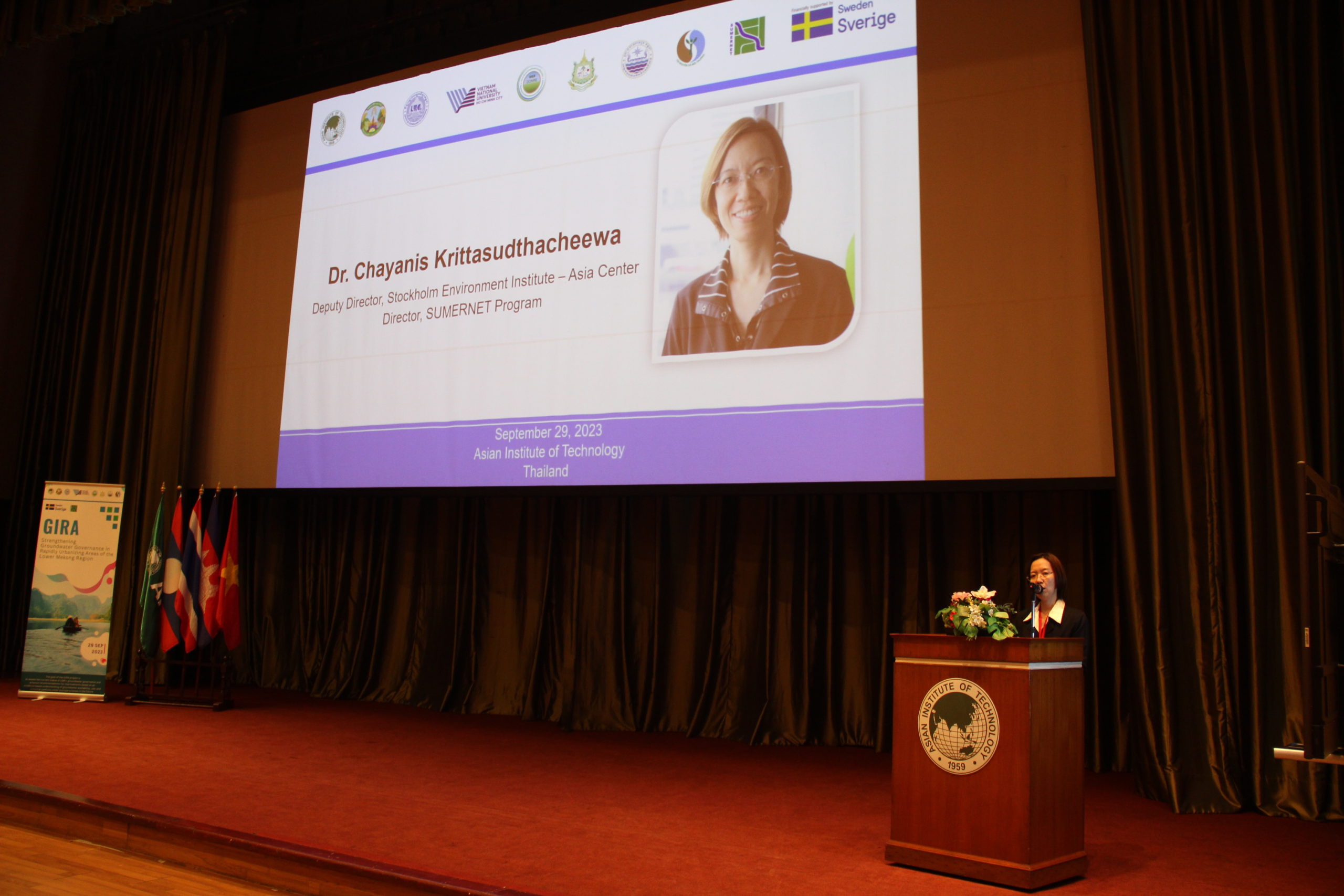
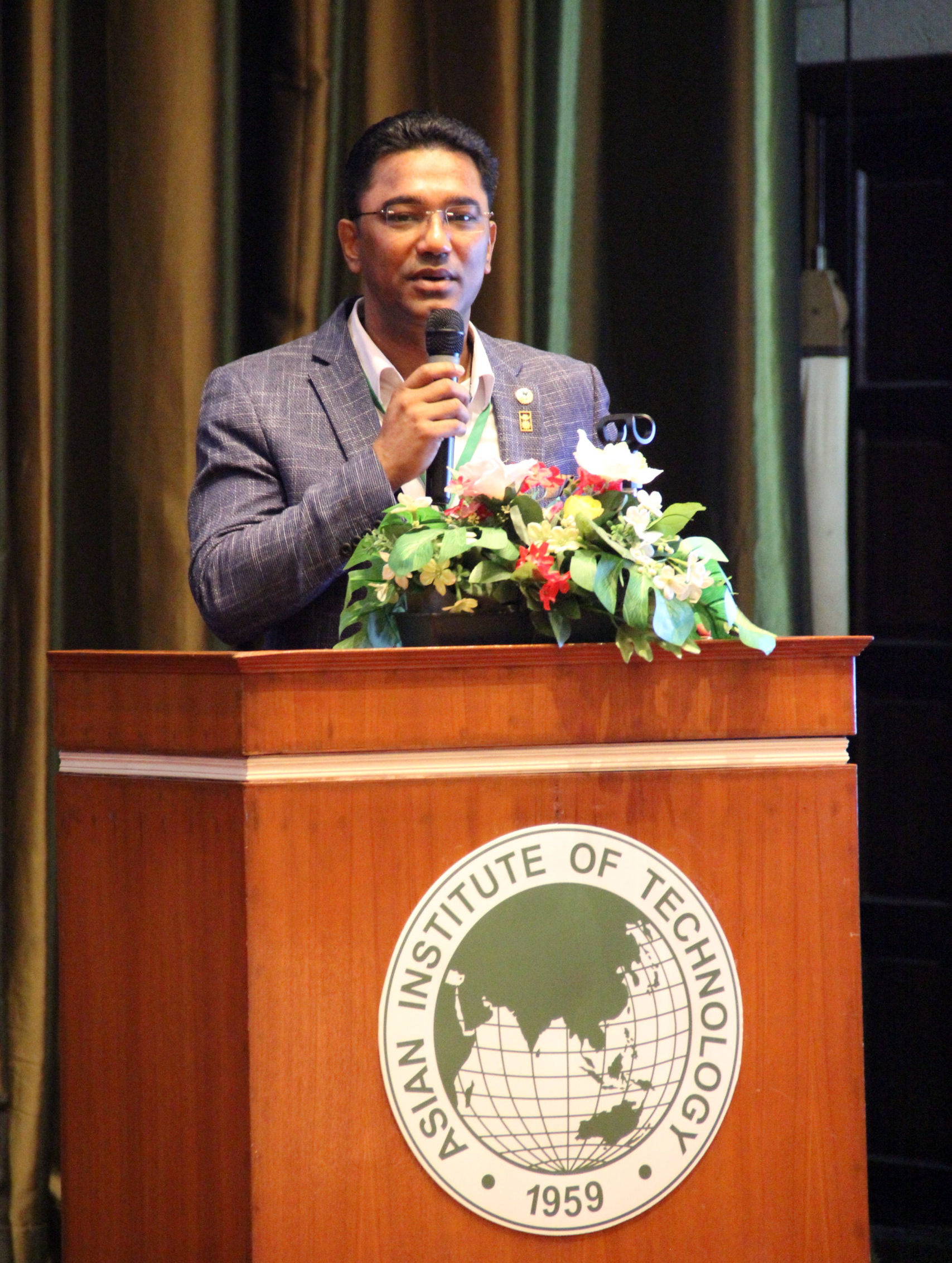
Project Outputs and Workshop Objectives
Prof. Sangam Shrestha, the Principal Investigator (PI) of the GIRA Project from the Asian Institute of Technology (AIT), provided an overview of the project’s objectives and outputs. The project sought to assess the current state of groundwater governance in the Lower Mekong Region, with categories ranging from non-existent to optimum state. The key workshop objectives included sharing project findings, discussing strategies for strengthening groundwater governance, and exploring opportunities for future collaboration.
The GIRA project yielded a significant number of knowledge products, including one review article, six research articles, 12 conference proceedings, two magazine and website articles, two PhD dissertations, and two master’s theses.
Key Findings from the Project
Throughout the workshop, key findings were presented for each of the four selected areas:
Khon Kaen, Thailand:
In Khon Kaen, Thailand, industrial sectors play a crucial role as the primary users of groundwater resources. Projections indicate that the region will face significant challenges in the future, with multiple stressors expected to severely impact groundwater availability. Despite the current groundwater governance in Khon Kaen being at an acceptable state, it faces notable hurdles related to institutional capacity and policy clarity. Addressing these challenges will be essential to ensure sustainable groundwater management in the region.
Can Tho City, Vietnam:
Can Tho City in Vietnam relies heavily on domestic sectors as major consumers of groundwater. The future poses significant concerns, as stresses are expected to lead to a substantial reduction in groundwater recharge and overall availability. Overexploitation and water quality issues compound the challenges faced in this region. Governance improvements, particularly in terms of coordination mechanisms, are imperative to address these issues and ensure the sustainable management of groundwater resources.
Siem Reap, Cambodia:
In Siem Reap, Cambodia, domestic sectors are the key users of groundwater resources. However, the region faces an uncertain future, with projected stresses likely to reduce groundwater recharge and availability, resulting in a moderate to high level of vulnerability. Groundwater governance in Siem Reap is currently in an incipient state, highlighting the pressing need for enhanced institutional capacity and improved coordination mechanisms to safeguard this vital resource.
Vientiane, Lao PDR:
Vientiane, Lao PDR, relies significantly on both domestic and agricultural sectors for its groundwater needs. However, projections suggest that the region is at risk, as stresses are anticipated to lead to a substantial reduction in groundwater recharge, making it highly vulnerable. Groundwater governance in Vientiane is presently in an incipient state, with limited provisions for inclusive governance. It is essential to develop and strengthen institutional capacity and coordination mechanisms to ensure the sustainable management of groundwater resources in this region.
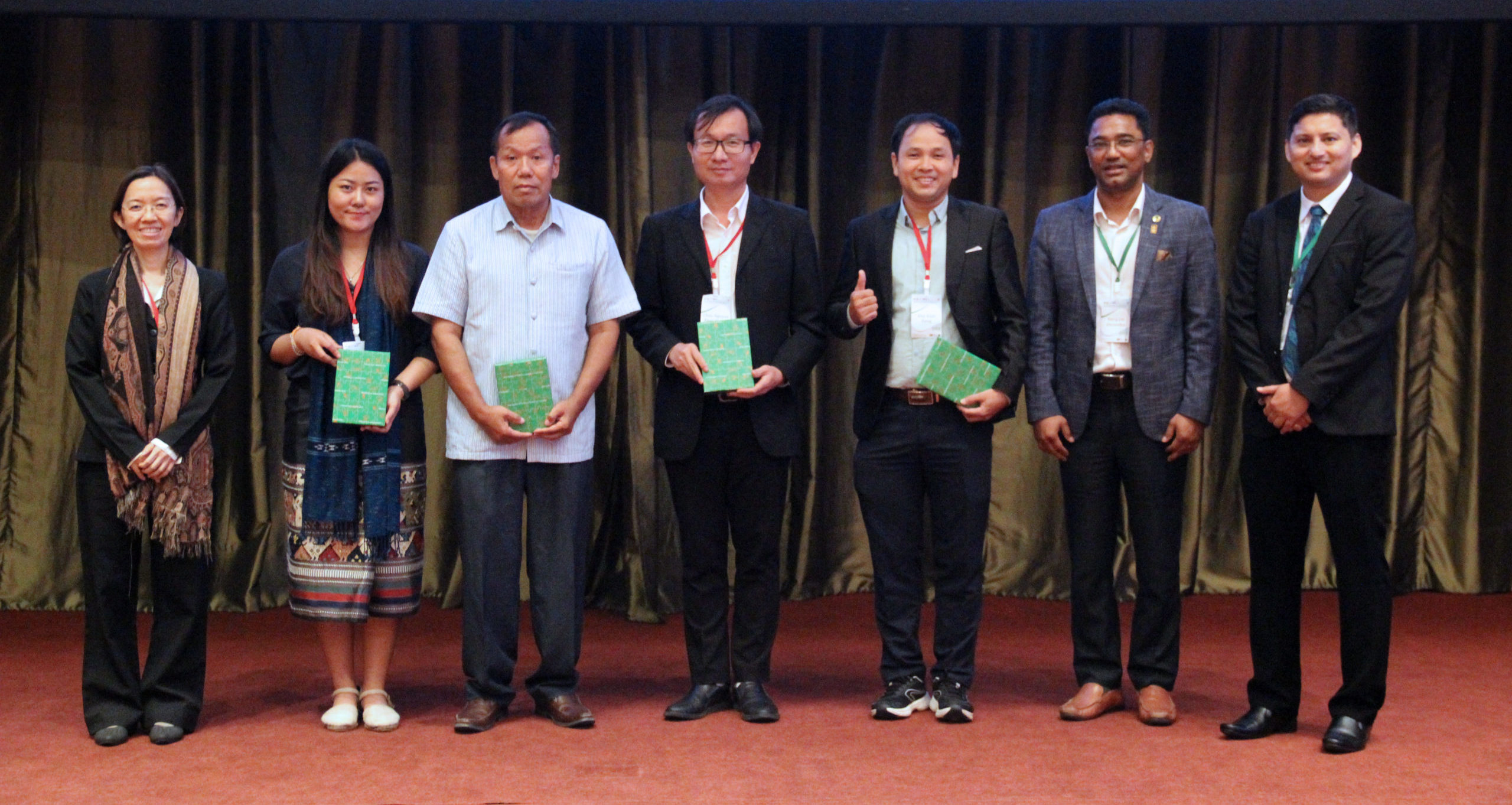
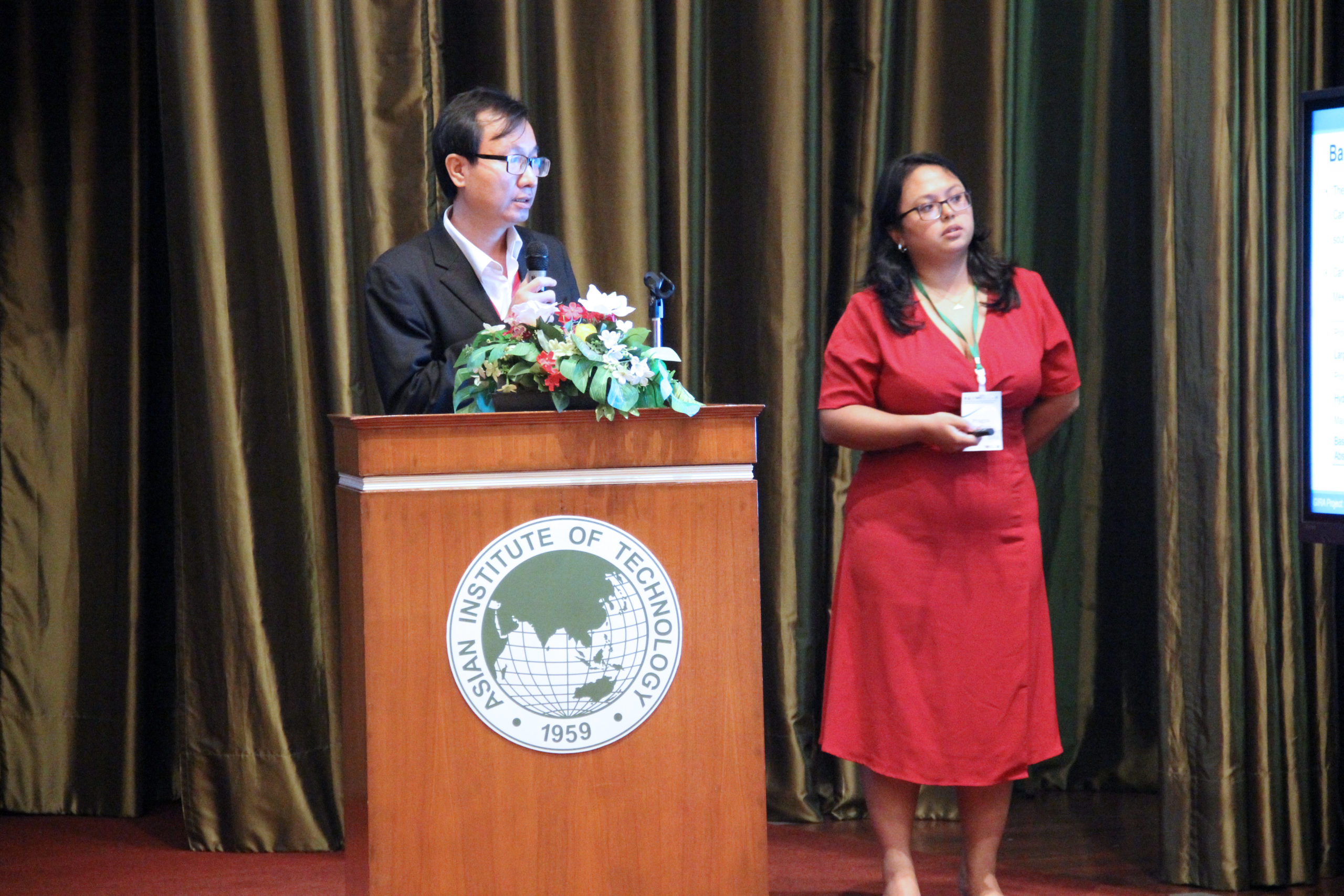
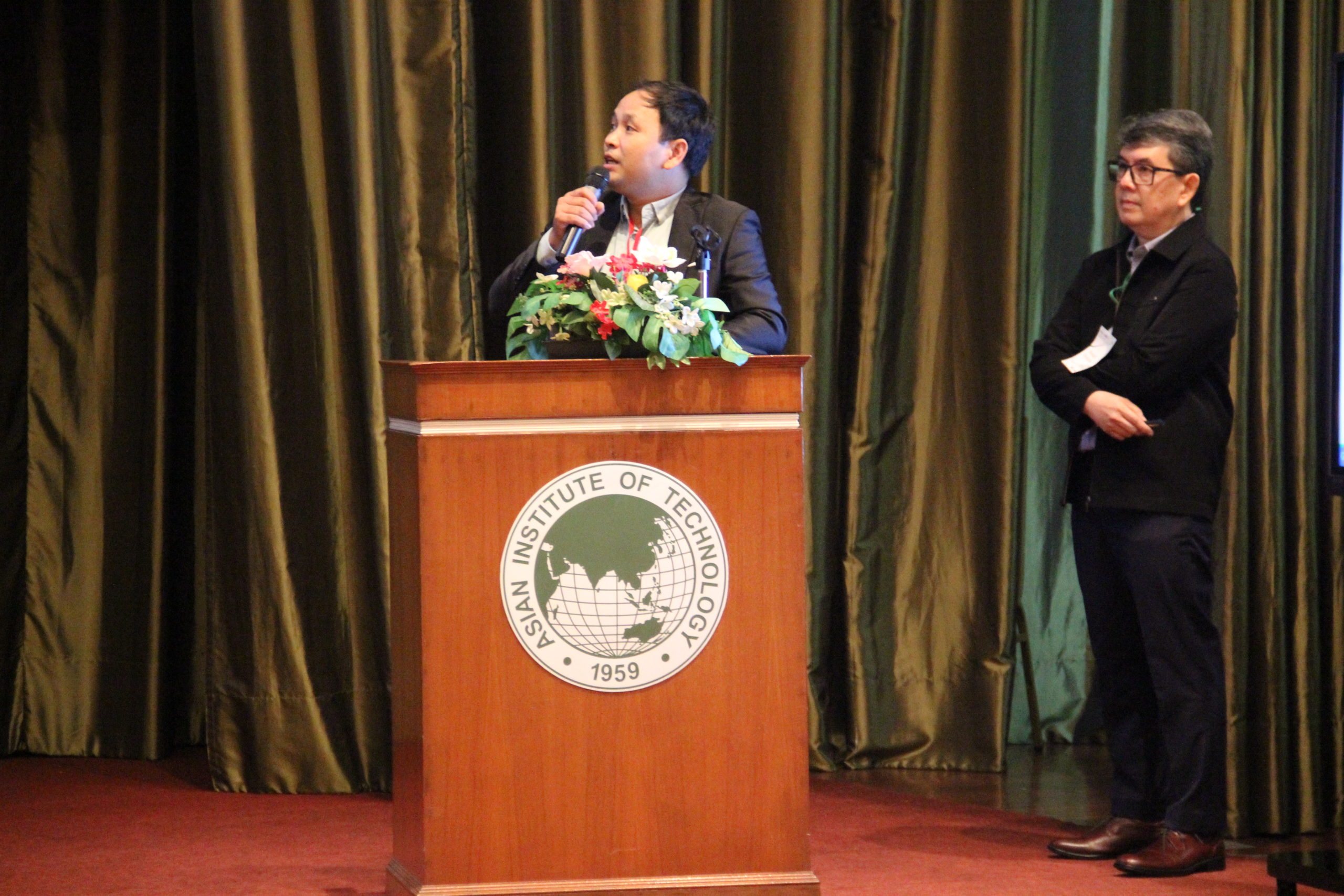

Insights from the Q&A Sessions
During the workshop’s Q&A sessions, participants discussed various aspects of groundwater governance, highlighting the need for capacity building, data availability, and stakeholder collaboration. Countries with different levels of groundwater management face both opportunities and challenges, emphasizing the importance of sharing knowledge and technologies.
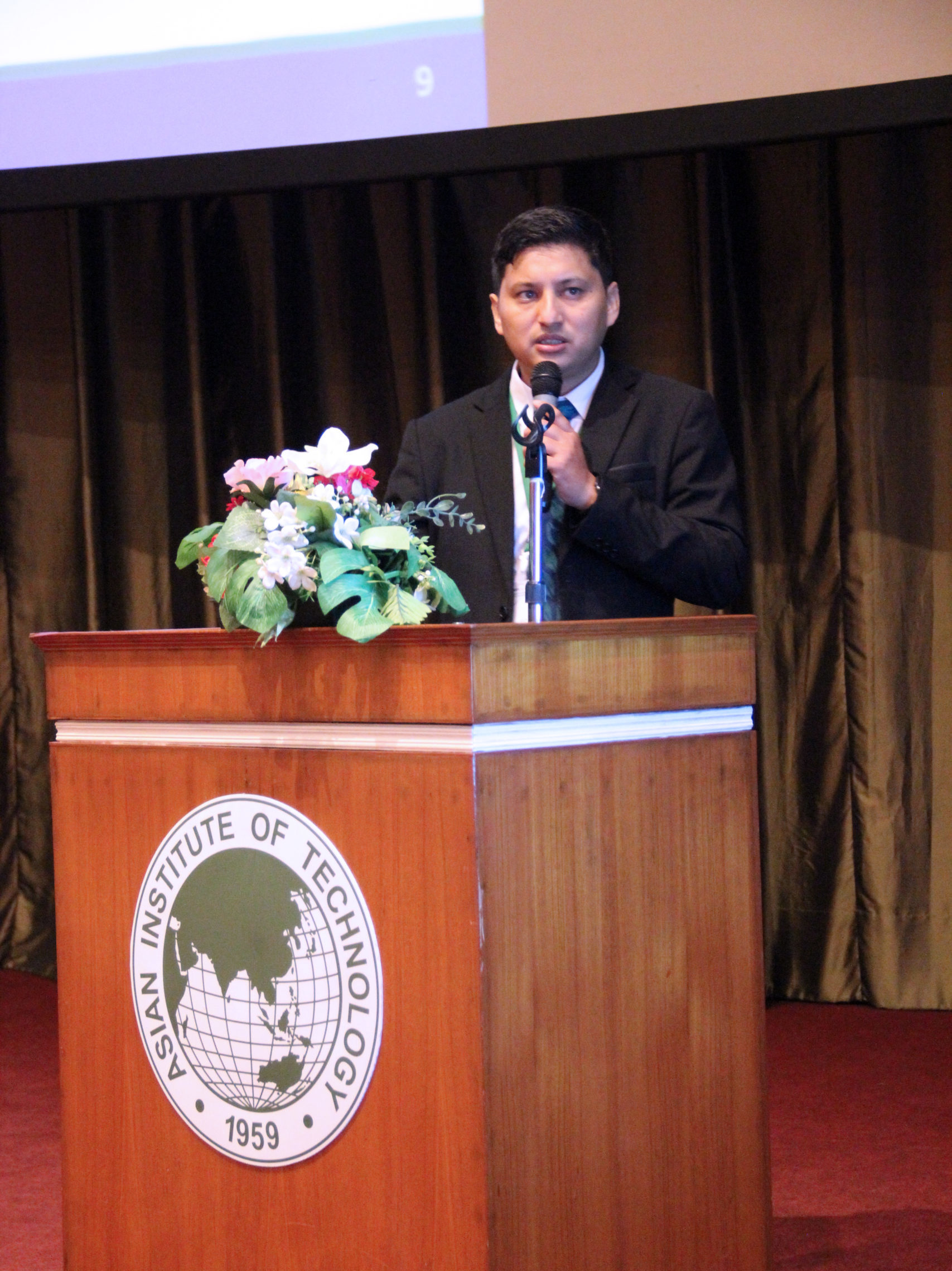
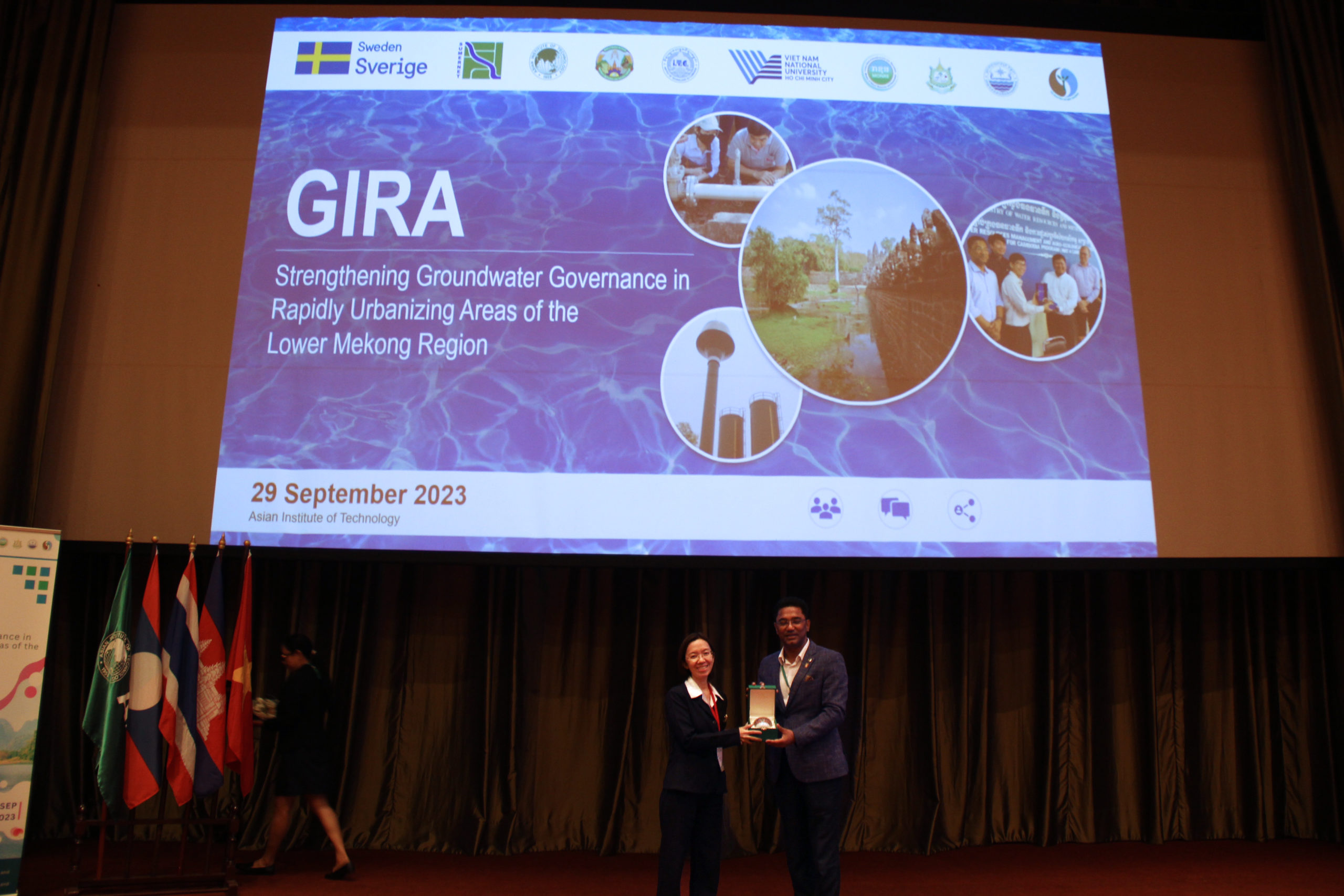
Panel Discussions and Way Forward
Session 2, moderated by Prof. Ashim Das Gupta (AIT), featured an expert panel discussing challenges in groundwater governance, emphasizing the importance of better monitoring, information sharing, and investment in storage. The panel emphasized the need for comprehensive groundwater management frameworks that address institutional, legal, and regulatory aspects.
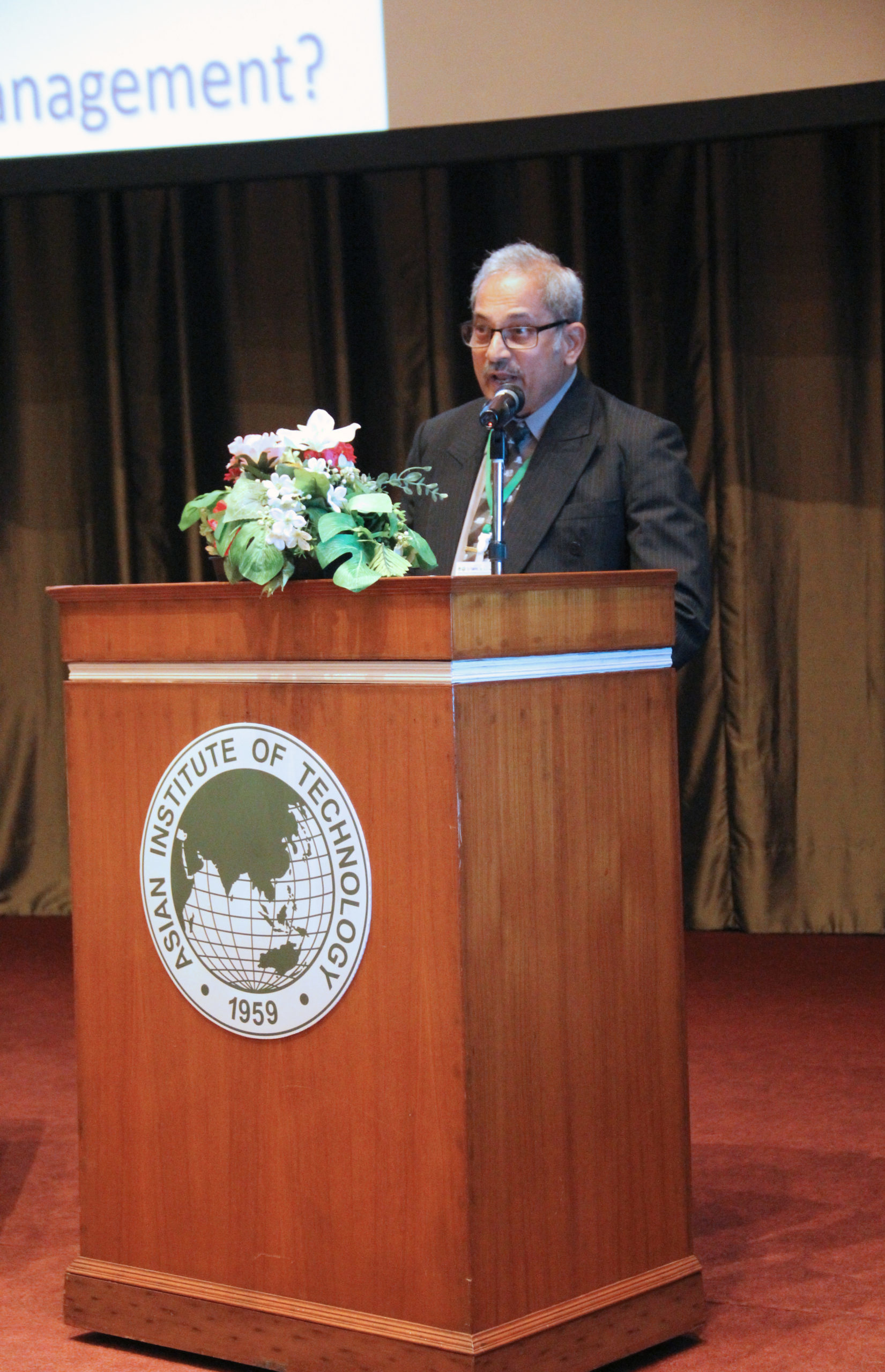
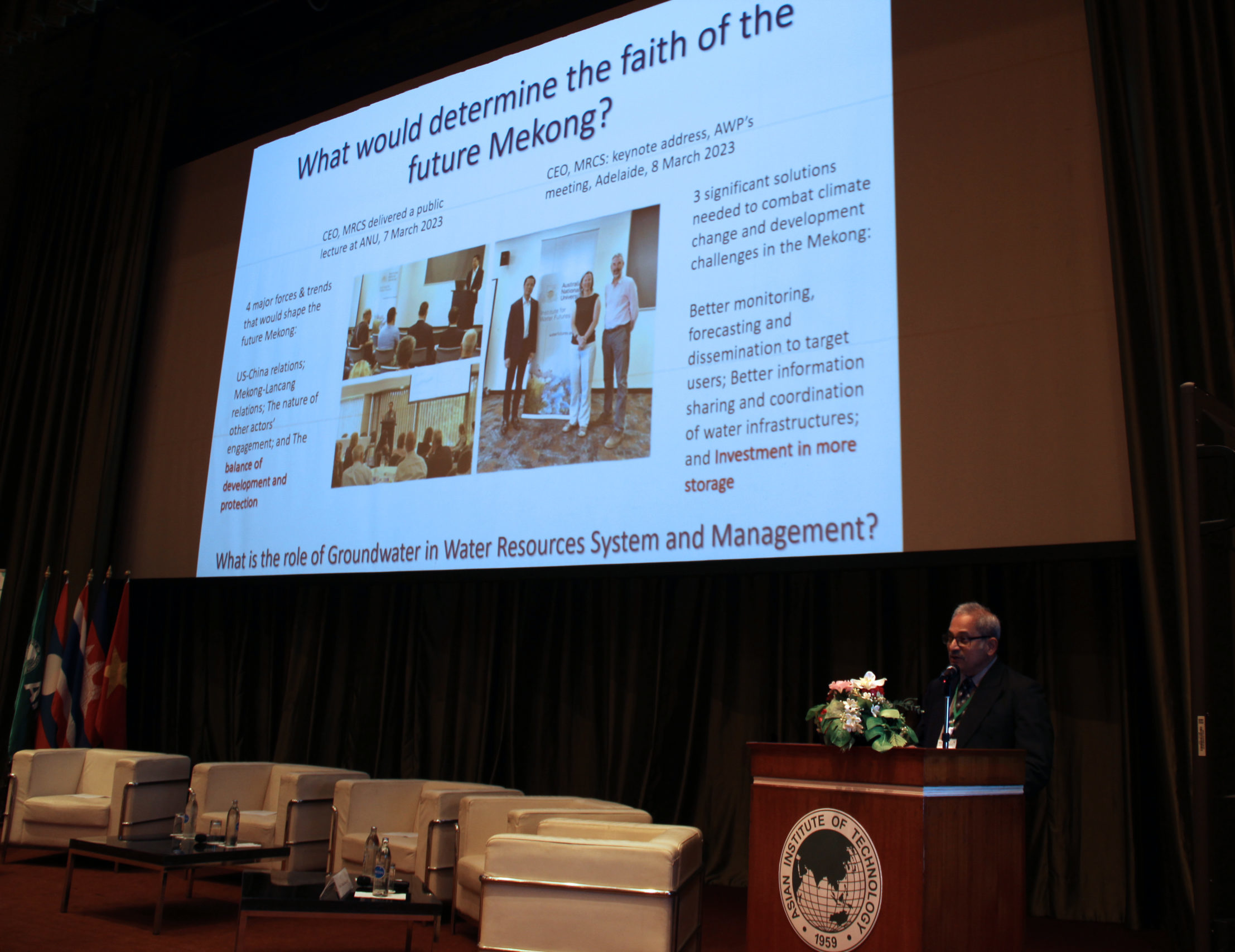
Session 3, moderated by Dr. Thanapon Piman, focused on boundary partners’ perspectives. Panelists from various organizations and government agencies shared insights, challenges, and experiences related to groundwater governance in their respective countries. The discussions revolved around the need for improved policies, data, and coordination.
Closing Remarks and Future Directions
Prof. Sangam Shrestha summarized the project’s policy recommendations, which included implementing groundwater regulatory frameworks, charging for groundwater extraction, enhancing groundwater monitoring and data management, and improving institutional capacity for sustainable groundwater management. He stressed the importance of inclusive groundwater governance, gender-responsive policies, and marginalized communities.
Dr. Thanapon Piman, representing SEI and SUMERNET 4 All, expressed gratitude for the project’s success and highlighted the importance of building a regional groundwater network to make this vital resource more visible and drive informed decision-making.
President Kazuo Yamamoto’s Appreciation and Closing Remarks
President Kazuo Yamamoto extended his appreciation to the organizations and individuals who contributed to the project’s success. He acknowledged the vital role played by the Ministry of Environmental and Natural Resources and Environment in Thailand, Laos PDR, Vietnam, and Cambodia, as well as the Ministry of Water Resources and Meteorology in Cambodia. President Yamamoto recognized the collaborative efforts of groundwater departments and management organizations in these countries.
In conclusion, President Yamamoto emphasized the importance of groundwater governance and data management, highlighting their pivotal role in sustainable development. He expressed hope for continued collaboration and knowledge sharing among countries in the region and commended the GIRA project for laying the foundation for informed decision-making and sustainable groundwater management in the Lower Mekong Region.

